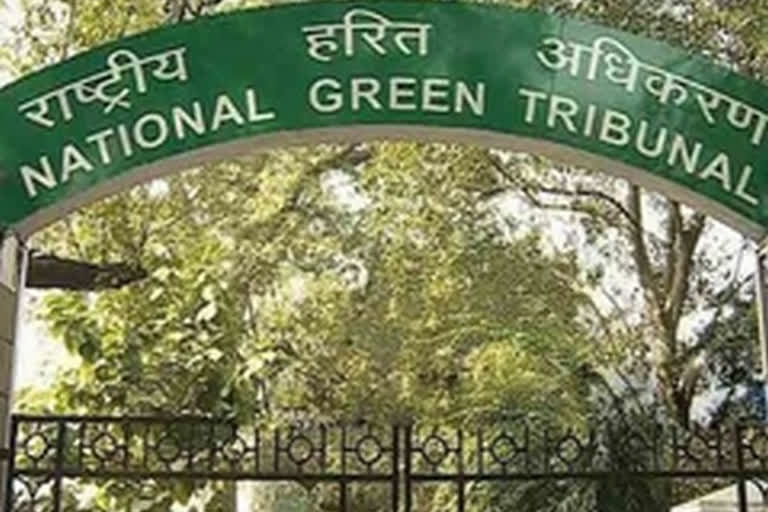New Delhi:The National Green Tribunal has warned of more stringent action against the concerned officials for not complying with the law relating to the prevention of the discharge of untreated sewage into Sai River at Pratapgarh in Uttar Pradesh while imposing a cut of Rs 1,000 per month from the salary of the concerned officer till compliance. The NGT noted that there is a continued violation of directions of the Supreme Court in "Paryavaran Suraksha Samiti & Anr. Vs. Union of India & Ors." and orders of this tribunal, which is resulting in contamination of drains and then of River Sai, which later meets Ganga.
"Taking a lenient view in the matter and giving the last opportunity for remedial action, factoring in the pandemic and the plea that the officer has been given this charge since February 2021, but to uphold public interest and rule of law, we direct imposing of cut of Rs. 1,000 per month from the salary of the officer till compliance, with further warning of more stringent action unless there is compliance and change in attitude towards compliance of the law," said the NGT bench headed by its chairperson Adarsh Kumar Goel.
The NGT was hearing T S Singh's application seeking prevention of the discharge of untreated sewage into Sai River at Pratapgarh in Uttar Pradesh. The tribunal noted that River Sai in the present case is also a tributary of Ganga and the irresponsible behaviour of the officer who perhaps knows nothing about the value of environmental norms and the effect of the violation on public health, food safety, aquatic life and overall environment has led to a large number of water bodies, including most revered river Ganga remaining polluted.
Read:PIL filed in NGT Bhopal against diamond mine in Buxwaha
The stretch of river Sai between Unnao to Jaunpur falls under category P-V. Uttar Pradesh Pollution Control Board (UPPCB) has not provided feedback to the OC on the formulation of the Sai Action Plan and the functioning of RRC. Further, PCB has failed to provide water quality data of river Sai, as directed vide order dated October 7, 2020. The NGT noted that the river stretch is loaded with daily disposal of 8.5 MLD sewage effluent causing septicity of the river on account of high fecal coliform and BOD.
